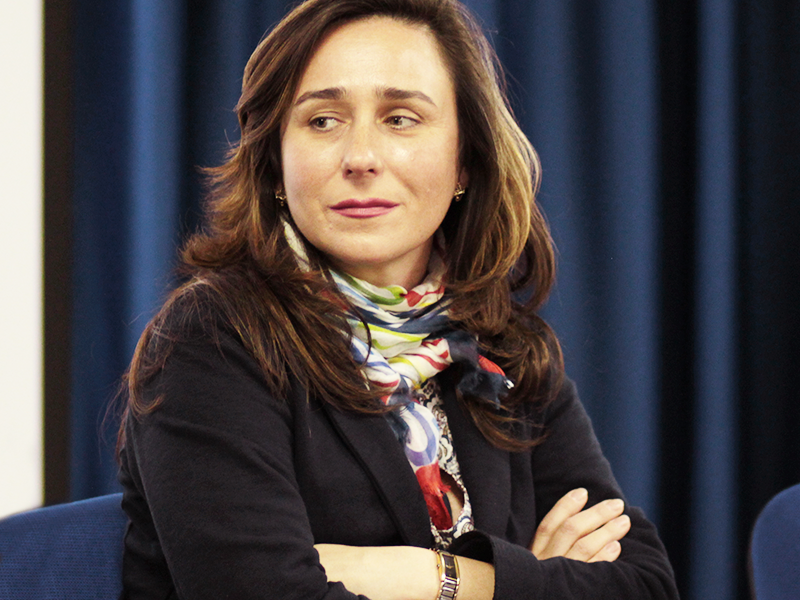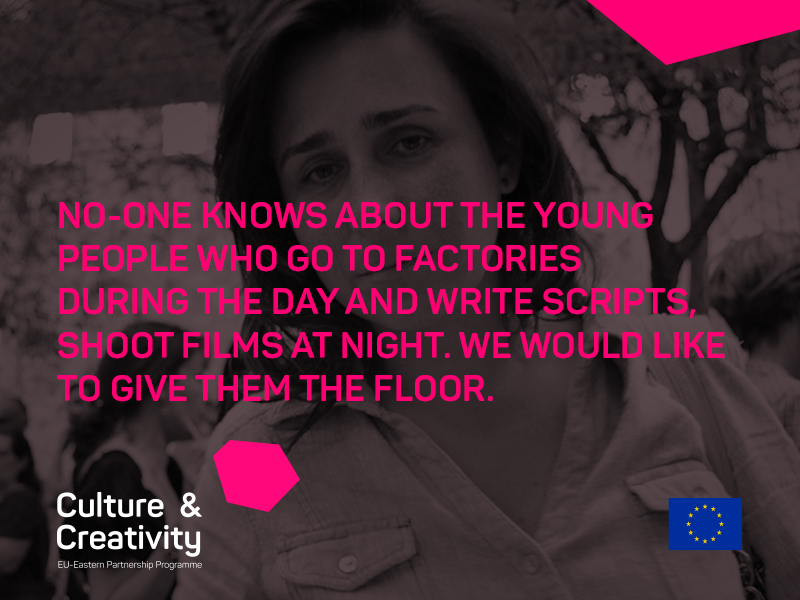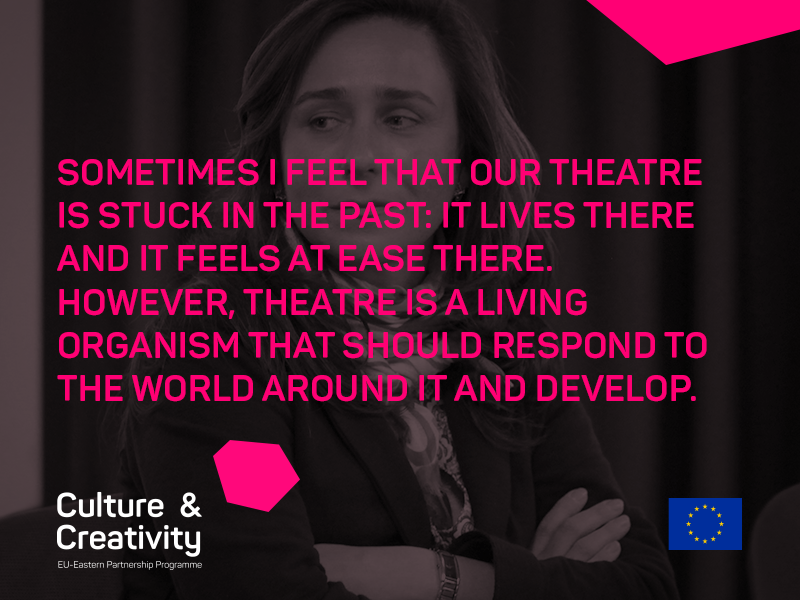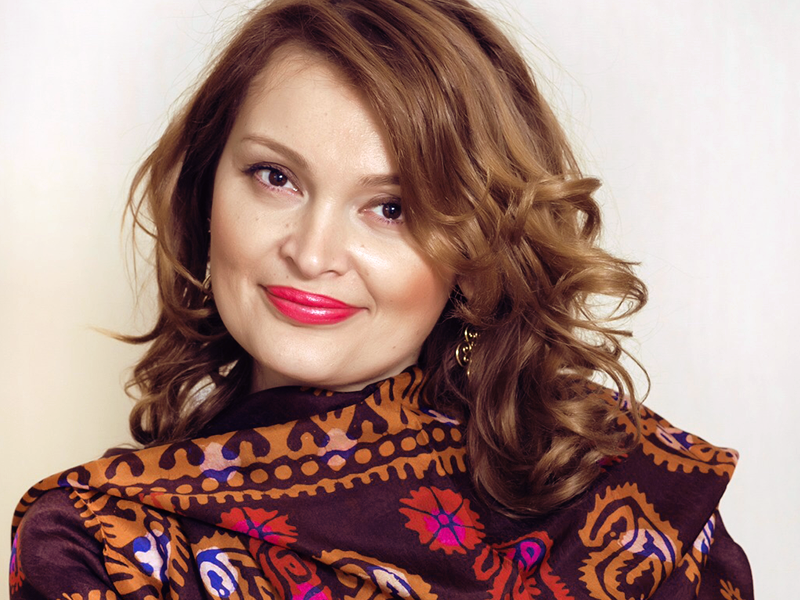
Angelika Krashevskaya: “There is a new audience in Belarus for which new theatre and cinema projects are simply indispensable”
Angelika, in November 2016, the Listapad Minsk Film Festival will be held for the 23rd time. ART Corporation initiated a change in format and it has now become a “film forum”. How does a forum differ from a festival?
A forum is also space for communication, the possibility to establish contacts and share experience. We want Belarusian filmmakers to make use of the fact that the best works are brought to festivals, the best directors and actors are invited. They should make the most of this opportunity. Some 300 works, including out-of-competition films, were presented at Listapad in its most successful years.
The Listapad Festival is already 23, but ART Corporation has only been organising it for the seventh year. We took over the project at the invitation of the Ministry of Culture of Belarus.
Do you have your own concept for the festival, which differs from that of the previous organisers?
When we were invited as managers and organisers, Listapad was an international festival in status, but in fact no one knew about it outside Belarus. That is why we proposed a new concept. Countries where the Soviet past is part of their history were invited to take part in the festival. These include Georgia, Latvia, Estonia, CIS and Eastern European countries, Cuba, China, etc.
Following the conceptual change, things were difficult. Viewers of the “old format” could not understand the new works, and a new audience had not yet formed. Today, everyone already knows what to expect from the festival, there’s even a buzz. There were times when we added three screenings of the same picture. The festival’s format is “arthouse”, so we usually use small theatres.

Does the new concept that you mentioned affect the subject matter of the works presented at the festival?
No, it doesn’t. The only requirement for the works is that the film be professional and able to compete with good works on equal terms. Our aim is to maintain the high level of the festival. The selection of Belarusian films is also quite rigorous. For the third successive year, a national film contest is being held during Listapad in three categories: Documentary, Fiction and Animation.
Which type of cinema does the festival aim for?
For auteur cinema. Auteur films are most vivid and interesting. The whole world has become commercial, there are films and series on TV. But no-one knows about the young people who go to factories during the day and write scripts, shoot films at night. We would like to give them the floor.
The founders of the Listapad festival are the Minsk City Executive Committee and the Ministry of Culture of Belarus. ART Corporation is a private company that carries out the project and manages all the stages of preparing and conducting the festival. Could you tell us more about this partnership?
Public funding ranges between 40% and 50%. The remaining funds come from sponsorship. We have to seek out sponsors every year. We don’t have benefits or subsidies. The unitary enterprise Minsk City Kinovideoprokat sells tickets to our events and with these sales it covers its expenses. We do not rent film theatres. And during the festival, Kinovideoprokat and all its services work with us around the clock.
Finding sponsors is no easy task either. But it’s interesting to work with us. We have permanent partners that collaborate and support our projects throughout the year. All resources we receive from our sponsors are used to cover the costs of the film festival. Listapad doesn’t have prize money. The winner receives a statuette and a certificate. Prize money could be an additional incentive for the participation of young filmmakers.
The TeART theatre festival is also organised by ART Corporation. It is safe to say that it is the most prominent event of the year in Minsk. Could you tell us how the event is organised?
TeART is a non-competitive festival. Using the funds that we obtain for organising it – 95% of which is sponsorship – we try to bring the most exciting productions from around the world to Minsk, with the focus on interesting directing. Our goal is to offer both viewers and professionals the opportunity to get acquainted with the most recent trends in European theatre.
On the other hand, we have been including the Belarus Open, which showcases the best Belarusian performances of the season, in the programme for the third year in a row. Any theatre can take part in the Belarus Open, be it a state, independent or project theatre. What matters to us is that the works are interesting.
We invite foreign guests to the Belarusian programme. Thus, we want Belarusian theatre to become part of the international theatre community. Sometimes I feel that our theatre is stuck in the past: it lives there and it feels at ease there. However, theatre is a living organism that should respond to the world around it and develop.
This year theatre troupes from nine countries will come to TeART, including troupes from France, Germany, Lithuania, Poland, Slovenia, Russia and Hungary. The performances are very diverse. The programme includes choreography, plastic, dramatic, musical and puppet theatre. It is important for us that any viewer can find something that speaks to them in the TeART programme.
Does the TeART festival have a permanent platform?
No, the performances are held on different platforms around the city. Unfortunately, finding a space remains the most pressing problem today.

Do festival’s shows fill theatres to capacity?
It varies. There are always many viewers for Russian language performances. After all, you don’t need to follow the subtitles or listen to the simultaneous translation. Choreography and plastic performances are also very popular. But for some reason viewers are reticent about shows from Mogilev or Brest. Apparently, people still don’t realise that talented people work in the regions.
You said that theatre is “stuck in the past”. What can bring novelty, a breath of fresh air into the world of theatre? Perhaps new forms, for example, project theatre, or some fundamental solutions in the field of theatre management?
We have a problem with project theatres. I can explain why there’s so few of them. The reason is unequal conditions between state and non-state theatres. Non-state theatres do not receive funding from the public budget, and most of them lack funds to rent platforms. “Where do you rehearse?” is a pressing question to which there is no answer. As a result, there should be a group of actors who are willing to work for free for a certain time. Such people are few.
Another drawback is that even as students, actors acquire fears, schemes and stereotypes that do not allow them to think about a career of a free professional and “building one’s own theatre”. Students are not ready to accept that they’re free in the profession. It’s simpler to be dependent. For many, it’s important to be “assigned” to a theatre. Even if such an actor goes on stage once a month only, at least this is an “official job”. Very often actors don’t fulfil themselves in the profession and move to other fields.
Angelika, your work is based on management. In Belarus, theatre management as a line of work is not very prevalent. What is missing for there to be more professionals in this field?
Firstly, it should be made clear that managers of state cultural institutions and independent cultural managers in Belarus are people who work in completely different conditions and carry out different work.
Obviously, we all live in a state. It regulates all processes. And yes, there are rules for the game that we either accept or we don’t… Bureaucracy is ubiquitous. But in our country it is complicated by the fact that we have laws that do not help, but rather make the situation in the creative environment stagnate.
For example, non-government theatres need to obtain permits to show their performances. That’s our reality.
You recently launched the School of Art Leader, as an educational project for cultural managers. Was it your answer to pressing problems?
We wanted to share our own experience within the framework of this school. What can an actor or director do when he’s left all alone? How not to lose hope and give up? Many of them change their line of work or leave after encountering challenges… Many become depressed when they find themselves outside the system, one-on-one with the world with one’s ideas. How many talented people have given up on their projects because of these fears? Nobody is collecting this data. Today, being a freelancer in the cultural field is very stressful. By launching the art leader school, we wanted to say that, firstly, don’t despair and, secondly, you have to focus on the idea that the creative professional wants to implement.

Crowdfunding: Opportunities and Risks
The funds for one of your shows were raised on an online crowdfunding platform. Could you tell us about this experience? How did you come up with this idea?
It was not that simple. In order to raise the required funds, we had to build a very good advertising campaign. Our employees monitored the progress of the project on a daily basis. People who donated to the show were the first to see it. They were actually simply buying tickets. The show was held. We are very proud that this is the first theatre project, which raised money through crowdfunding in Belarus.
What were the funds used for exactly? How would you evaluate this experience?
The funds were used for costumes, the set, to pay actors, the production group, and taxes. This kind of fund raising is not only an opportunity but also a risk. You could raise the money, but not obtain the permission to present the show, or be refused the space rental… You can’t rely entirely on this method.
Do you feel that people are willing to donate their own money to theatre projects?
I was able to feel something else: in Belarus there’s an audience that simply needs new theatre and film projects. There’s an interest group. We were all alone before. But a new generation has grown up over the last six years. This includes adults whose vision of theatre and expectations of shows have changes. And that’s great.
After all, this is precisely why theatre is interesting, it shows people what’s happening here and now. We need theatre that communicates with viewers using the same language that they use in their own lives. This language should be understood by all.




